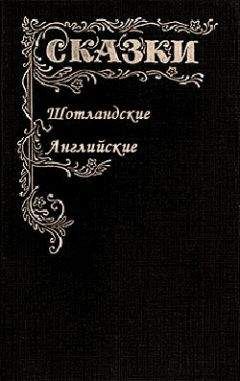Ознакомительная версия.
And even though the king did not delight in such a fishing method, nevertheless the princess and shepherd were united the same day and lived for many years together.
1. Выберите правильный вариант:
1. Taking his bead, he trudged to the court to try his fortune.
2. Taking his bottle and bag, he trudged to the court to try his fortune.
3. Taking his sheep, he trudged to the court to try his fortune.
4. Taking his children, he trudged to the court to try his fortune.
2. Where did he put several pretty fish?
1. He put them into his bag.
2. He put them into his socks.
3. He put them into his pocket.
4. He put them into his mouth.
3. Who is a shepherd?
1. a person who tends, herds, feeds, or guards herds of sheep
2. a person who works with natural wood
3. a person who produces musical sounds with the voice
4. an individual who owns or runs a shop
4. Why was the shepherd nearly dozing before midnight?
1. Because he was working hard.
2. Because he liked to sleep.
3. Because there were some nice beds in the hall.
4. Because he had not slept for a long time.
5. sweet ally = _____________
1. my brother
2. my dear
3. good food
4. candy and sugar
6. What is a fish pond?
1. a natural watercourse, flowing towards an ocean
2. the body of salty water
3. a part of the ocean
4. a pond that is stocked with fish
7. Выберите правильный вариант:
1. I have been fished in my pocket.
2. I have been fishing in my pocket.
3. I have fishing in my pocket.
4. I been fishing in my pocket.
8. What does it mean, “she gave him leave to go to sleep”?
1. she disturbed his sleep
2. he was dreaming about her
3. she refused to marry him
4. he asked her where he could sleep
9. Выберите правильный вариант:
1. The shepherd bidden the king lie down.
2. The shepherd bid the king lay down.
3. The shepherd bid the king lie down.
4. The shepherd was bidding the king lie down.
10. Выберите нужный глагол:
The shepherd _____________ the king a prick with a needle.
1. gave
2. made
3. took
4. put
11. Выберите нужные глаголы:
Shepherd, do you _____________ you _____________ get me one more?
1. thought, could
2. can, thought
3. think, could
4. think, will
12. Выберите нужный предлог:
He pulled _____________ his shoes and stockings.
1. on
2. out
3. of
4. off
13. Ответьте на вопросы:
1. How many persons are mentioned in the story?
2. What is the name of the shepherd?
3. What have you learned about the fishing?
4. What do you like and what don’t you like in the story?
5. What would you do if you were the main character of the story?
6. What is the end of the story?
7. Retell the story.
14. Заполните таблицу:
ОТВЕТЫ:1. Taking his bottle and bag, he trudged to the court to try his fortune.
2. He put them into his pocket.
3. a person who tends, herds, feeds, or guards herds of sheep
4. Because he was unused to such fare.
5. sweet ally = my dear
6. a pond that is stocked with fish
7. I have been fishing in my pocket.
8. she allowed him to sleep
9. The shepherd bid the king lie down.
10. gave: The shepherd gave the king a prick with a needle.
11. think, could: Shepherd, do you think you could get me one more?
12. He pulled off his shoes and stockings.
14.
Some 900 years ago an extraordinary occurrence took place on Market Day in the English midlands town of Coventry.[68]
Lady Godiva was the wife of Earl Leofric of Mercia,[69] one of the most powerful men in England. Earl Leofric was one of the all-powerful lords who ruled England under the Danish King Canute.[70] Lady Godiva was a wealthy and powerful woman. Lady Godiva was a rich landowner in her own right and one of her most valuable properties was Coventry.
Leofric was a tyrant, he tyrannised the Church and did not hold the same religious convictions as his wife.
The Earl’s taxes were very high, and people in Coventry was very upset about it. So the people were burdened terribly by taxes. Lady Godiva took pity on the people of Coventry, who were suffering grievously under her husband’s oppressive taxation. Lady Godiva begged her husband to lower the taxes many times, but he never agreed to. Lady Godiva appealed again and again to her husband, who obstinately refused to remit the tolls.
In order to arrange for tax relief, she needled her husband Leofric at every opportunity until one day he made her a rash promise. Finally, the Earl told Lady Godiva that if she rode through the streets completely naked, he would grant her request and lower the taxes:
“Mount your horse, and ride naked, before all the people, through the market of the town, from one end to the other, and on your return you shall have your request.[71]”
Clearly Leofric meant it as a joke for he considered his wife to be practically a religious woman. The very idea that Godiva would agree to his challenge took him completely by surprise. He was quite sure that his demure, modest wife would never do such a thing.
But Godiva thought that her nudity would be interpreted as a sign of her humility and repentance before God. She was not ashamed of her nudity. On Leofric’s words Godiva replied:
“But will you give me permission, if I am willing to do it?”
“I will,” said he.
So great was Godiva’s compassion for the people of Coventry that she overcame her horror of doing this. The Countess sent a message through town that told everyone to close their shutters and stay indoors. Then she loosed her hair and let down her tresses, which covered the whole of her body like a veil, and then mounting her horse and attended by two knights, she rode through the market-place, without being seen,[72] except her fair legs. So Godiva rode through town only clothed by her hair. She rode through the silent streets unseen by the people, who had obeyed her command because of their respect for her.
When she had completed the journey, she returned with gladness to her astonished husband, and obtained of him what she had asked. The Earl gave in and lowered the taxes of the town: he freed the town of Coventry and its inhabitants from the service, and confirmed what he had done by a charter.
However, only one man was unable to resist the temptation to peep at the Countess. It was a tailor named Tom who drilled a hole through his shutters, so that he might see Godiva pass.[73] He caught a glimpse of Lady Godiva, and before he could satisfy his gaze he was struck blind.[74] He was blinded by the wrath of Heaven. This is where the phrase “Peeping Tom[75]” for a voyeur[76] comes from. Tom’s nickname has become synonymous with pervert.[77]
Leofric was forced to pretend the whole thing was a miracle, which in a way it was, since almost no one did see her nudity. But the worst thing about this was that he had to grant the tax break.
Lady Godiva, as Countess of Mercia, had personal charge over the good people of Coventry. Her name Godiva is the Latin form of the Saxon name Godgifu or Godgyfu, meaning God’s gift. There were many celebrations to remember Lady Godiva’s courage. A pageant is held annually in Coventry[78] to re-enact Lady Godiva’s original route through the town.
Once, long ago,[80] the Danish land owned a mighty monarch, Scyld Scefing,[81] the founder of a great dynasty, the Scyldings.[82] This famous king Scyld had come to Denmark in a mysterious manner, since no man knew whence he sprang. As a babe he drifted to the Danish shore in a vessel loaded with treasures; but no man was with him, and there was no token to show his kindred and race. When Scyld grew up he increased the power of Denmark and enlarged its borders; his fame spread far and wide among men. He and his warriors sailed far over the sea, conquered many tribes and forced them to pay tribute to him. His glory shone undimmed until the day when, full of years and honours, he died.
When Scyld died, his men took his body to the shore of the ocean where, in the harbour, stood Scyld’s ship, ready for a journey across the ocean. They laid him on the deck of the ship. Then they brought there many treasures, also his weapons and armour, and put a golden banner high over his head. Then, with sad hearts, they let the ocean carry him away. Nobody ever knew what happened to that ship. The sorrowing people restored Scyld to the mysterious ocean from which he had come to them.
After Scyld, his grandson ruled the fierce vikings. The descendants of Scyld ruled and prospered till the days of his great-grandson Hrothgar.[83]
Hrothgar was a mighty warrior and conqueror, who won glory in battle, and whose fame spread wide among men, so that nobly born warriors, his kinsmen, were glad to serve as his bodyguard and to fight for him loyally in strife. He was very successful in war and his warriors obeyed him gladly; they received much tribute, and soon his groups of warriors grew into a large and mighty army.
Then Hrothgar decided to build a great hall, the greatest and tallest and most beautiful in the world, in which he could hold feasts[84] and banquets, and could entertain his warriors and thanes,[85] and visitors from afar. He sent orders to many tribes to come and help to build the hall. They came and very quickly the banquet hall was ready. So King Hrothgar constructed the great hall Heorot[86] for his people. In it he, his wife, and his warriors spent their time singing and celebrating. At the first grand feast that Hrothgar held in the great banquet hall, he gave many precious gifts of rings and jewels and other things to his thanes and warriors. The musicians played their harps, the bards sang, and there was plenty of the best food and wine on the tables. Thus Hrothgar and his men lived a joyful and happy life until a cruel stranger appeared among them.
What happened? Day by day[87] the feasting continued, until its noise and the festal joy of its revellers aroused a mighty enemy. Grendel[88] was a terrible troll-like monster, a man-eater, powerful, evil and cruel. This monstrous being, half-man, half-fiend, dwelt in the fens near the hill on which Heorot stood. Terrible was he, dangerous to men, of extraordinary strength, human in shape but gigantic of stature, covered with a green horny skin, on which the sword would not bite. His race, all sea-monsters, giants, goblins,[89] and evil demons, were offspring of Cain.[90]
Grendel was pained by the noise. He did not like people and he did not like the merry life in the banquet hall. Grendel was one of mankind’s most bitter enemies;[91] his hatred of the joyous shouts from Heorot, and his determination to stop the feasting grew on. One night he went to the hall to see what the king and his men did there. The door was open and he saw a company of thanes and warriors sitting at the tables or lying on the floor, and all of them were asleep after the feast. Grendel attacked the hall and killed and devoured thirty of Hrothgar’s warriors while they were sleeping. But Grendel did not touch the throne of Hrothgar, for it was protected by a powerful god.
When dawn broke, and the Danes[92] from their dwellings around the hall entered Heorot, great was the lamentation, and dire the dismay, for thirty noble champions had vanished, and the blood-stained tracks of the monster showed but too well the fate that had overtaken them. Hrothgar’s grief was profound, for he had lost thirty of his dearly loved bodyguards, and he himself was too old to wage a conflict[93] against the foe – a foe who repeated night by night his awful deeds.
The people were looking at the tracks of the terrible stranger on the floor of the hall. They knew that it was Grendel. “He will come again and again,” they said. “We are not safe here now.” Hrothgar and his people, helpless against Grendel’s attacks, abandoned Heorot. No champion would face the monster, and the Danes, in despair, deserted the glorious hall of which they had been so proud. Many of the thanes were frightened, and ran away and hid themselves in places where they thought the monster could not find them.
There were now fewer men in the banquet hall. And when Grendel came again one night, there was a very long struggle, but Grendel was a demon and had the strength of a demon. And so he killed some of the men and again ran away with them to the moor and devoured them.
Hrothgar could do nothing. The monster came now not only to the banquet hall, but to the houses of the people, and soon many houses were empty. And Grendel continued to kill.
The deeds of Grendel became known in all the countries of that time. Far and wide[94] spread the tidings of this terrible oppression, and many champions came from afar[95] to offer King Hrothgar their aid, but none was heroic enough to conquer the monster, and many mighty warriors lost their lives in a vain struggle against Grendel. At length[96] even these bold adventurers ceased to come; Grendel remained master of Heorot, he came often at night to the hall and slept there, and the Danes settled down in misery under the bondage of a perpetual nightly terror, while Hrothgar grew old in helpless longing for strength to rescue his people from their foe.
Twelve long years passed and there was great sorrow in the land. Hrothgar wanted to give Grendel much gold to end the war between them, but the monster refused. The banquet hall was empty now at night and there were no more feasts there. Those who had to cross the moors were in great danger, for Grendel watched for them, and caught and killed many. Many strong and brave men often sat in council[97] with Hrothgar to decide what to do.
Beowulf, a young warrior who lived in a land far from the Danes, heard of Hrothgar’s troubles and left his homeland to help Hrothgar.
When Beowulf with his men came to Hrothgar, he said: “O great king! We have heard about the terrible monster that comes in the dark nights and destroys your people. Perhaps I can help you to overcome this demon.”
Ознакомительная версия.





